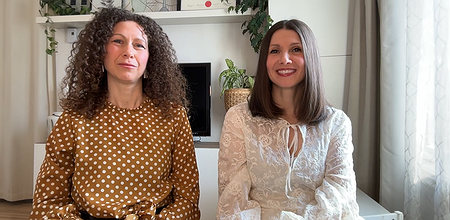- Learn the principles of attachment theory, as it applies across the life cycle
- Elicit information on history to establish the predominant attachment style of their patient
- Know their own attachment style and recognize how that might affect session process
- Use their knowledge of attachment to intervene in therapy to optimize outcomes
Working with Attachment Style in Psychotherapy
Dr. Gail Myhr, Associate professor of psychiatry
Integrating attachment strategies to strengthen alliance and outcomes
Excerpt:
- 2h of continuing education
- 17 lessons that last from 5 to 15 minutes each
- 1 certificate of achievement
- 1 PowerPoint
- 1 bibliography
- 1 course evaluation
- 7-day money back guarantee
- Unlimited access
- 97% of participants who completed the satisfaction survey declare they would recommend this course to a colleague
Overview
This training provides you with evidence-based frameworks and practical assessment protocols for integrating attachment theory into your clinical work across diverse patient presentations. You will gain structured interview techniques for eliciting attachment history and current relational patterns, learn to identify how your own attachment orientation influences session process and countertransference, and acquire specific intervention strategies tailored to dismissive, preoccupied, and disorganized attachment presentations.
Throughout this course, you will:
- Apply systematic clinical interview questions to assess patients' attachment styles through childhood experiences, current relationship patterns, and responses to separation and reunion dynamics
- Recognize attachment-based presentations in the consulting room, including deactivating strategies in dismissive patients, hyperactivating patterns in preoccupied patients, and the conflicted behaviors characteristic of disorganized attachment
- Differentiate your role as secure base versus safe haven depending on whether patients require support for exploration and autonomy or need containment during attachment system activation
- Implement goal-corrected empathic attunement that responds to attachment-related defenses without reinforcing maladaptive patterns, fostering earned security through the therapeutic relationship
- Evaluate cultural variations in attachment distribution and expression to avoid misattributing culturally normative interdependence or independence as pathological attachment patterns
By integrating these assessment methods and attachment-informed interventions into your practice, you strengthen your capacity to anticipate how patients will engage with therapy, navigate alliance ruptures more effectively, and adapt your therapeutic stance to provide the specific relational experiences that support both symptom reduction and more secure internal working models. The framework extends beyond individual therapy to inform your understanding of intergenerational transmission patterns, parenting interventions, and the developmental origins of presenting psychopathology across the lifespan.
Accreditation
Collège des médecins du Québec
For physicians who practice psychotherapy, training recognized by the Ordre des psychologues du Québec is automatically considered as activities adopted by the Collège des médecins, in accordance with Article 3 of the Regulation.
For physicians who do not practice psychotherapy, the College evaluates each recognition request based on the following criteria:
- the relevance of the activity to the practice of the profession
- the skills and experience of the trainer
- the quality of the content and its adequacy with the physician's practice
- the pedagogical framework of the activity
- the quality of the documentation provided
- compliance with the training objectives set out in the regulation
- the presence of a certificate of participation or an evaluation
About the expert

Gail Myhr, MD, CM, MSc, FRCPC, is Associate Professor of Psychiatry at McGill University and staff psychiatrist at the McGill University Health Centre. A cognitive-behavioural therapist with extensive clinical experience, she is a Fellow of the Royal College of Physicians and Surgeons of Canada, a Diplomate of the Academy of Cognitive Therapy, and a Founding Member of the Canadian Association of Cognitive and Behavioural Therapies.
In 2021, Dr. Myhr was named Fellow of the Canadian Association of Cognitive and Behavioural Therapies, recognizing her distinguished contributions to CBT science, practice, training, and advocacy in Canada. Her clinical and research interests include patient suitability for short-term CBT, attachment-informed interventions in CBT, evidence-based CBT supervision, and CBT for psychosis, including Avatar Therapy.
Learning objectives
Learning material
A theoretical course illustrated with clinical examples. This course is composed of videos of 5 to 15 minutes each. The PowerPoint of the course to download.
Syllabus
- PowerPoint
- 1. Introduction
-
Foundations of Attachment Theory
- 2. What Is Your Attachment Style
- 3. What Is Attachment
- 4. Principles of Attachment Theory
- 5. Measuring Attachment in Infants and Children
- 6. Attachment Measurement in Adults
- 7. Attachment Over the Life Span
-
Clinical Application and Case WorkRecognizing your patient’s attachment style
- 8. Recognizing your patient’s attachment style
- 9. Attachment & Psychotherapy
- 10. Working with Attachment
- 11. Case Example- Dismissive Avoidant Patient
- 12. Case Example- Preoccupied Patient
- 13. Working with Disorganized Patient
- 14. Therapy Outcome & Patient Attachment Style
- 15. Therapist Attachment Style- Part 1
- 16. Therapist Attachment Style- Part 2
- 17. Conclusion
- Bibliography
CE Credits
Download a certificate of successful completion.
Audience
This course is intended for mental health professionals.
Your comments
"Dr. Myhr is an excellent presenter and teacher. She is thorough and gives good case examples, which make the material come alive. This course will help me in my practise."
A social worker (Canada)
"I appreciated the way the course was presented - in sections that were easy to follow."
A psychologist (Canada)
"Many thanks for this training! A good reminder of the basics of attachment with a very relevant clinical focus. The clinical examples provided were very complete, I would have taken more." (automatically translated)
A psychologist
Registration
Ask a question
Do you have a question? Then email us at contact@asadis.net
Frequently asked questions
-
Is there an evaluation at the end of the course?
To validate the achievement of the learning objectives, a final evaluation in the form of true/false questions is required. It must be completed in order to obtain the certificate of completion.
In addition, an optional self-assessment is offered at the beginning and end of the course, allowing you to measure your progress on the targeted skills.
These evaluations are not graded and are intended primarily to support your professional reflection.
-
I have a disability. Can I receive specific support?
Yes! This training is offered as a pre-recorded video format, without subtitles. If you have a disability, we can provide an adapted alternative (technical assistance for viewing or individual supervision). For any request, please contact our disability coordinator at the following address: contact@asadis.net
-
How long do I have access to the course?
After your registration, the course is accessible anytime and from anywhere with unlimited access.
-
When does the course start?
That is entirely up to you! When you buy a course, you'll receive an access link that you can activate when you want.
-
Is there a student rate?
Yes there is! To learn more, email us at contact@asadis.net.
You may also be interested in:
Legal notice
The courses offered by ASADIS are accredited by different professional organisations. In addition, ASADIS is approved by the Canadian Psychological Association to offer continuing education for psychologists. ASADIS maintains responsibility for the program.
The CPA’s approval of an individual, group, or organization as a CE Sponsor or Provider is restricted to the activities described in the approved application or annual report form. The CPA’s approval does not extend to any other CE activity the Sponsor or Provider might offer. In granting its approval, the CPA assumes no legal or financial obligations to Sponsors, Providers, or to those individuals who might participate in a Sponsor or Provider’s CE activities or programs. Further, responsibility for the content, provision, and delivery of any CE activity approved by the CPA remains that of the CE Sponsor or Provider. The CPA disclaims all legal liability associated with the content, provision, and delivery of the approved CE activity.




